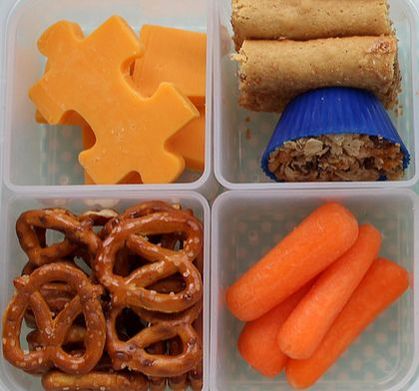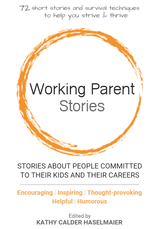|
A movie review We enjoyed the CNN documentary RGB enough to conclude that we wanted to see "On the Basis of Sex" too, the "inspired by a true story" movie about events that occurred duing Ruth Bader Ginsburg's education and early career. And we're glad that we did because it provided a different view into Judge Ginsburg's history. (One, we should note, that is somewhat fictionalized. You can check the facts vs. fiction online.) Not long ago, I attended a class called "Understanding myself from a cultural perspective". One of the most memorable things the instructor told us is that an outsider can't become a member of a group unless he or she has an insider advocate. In addition to being a thought-provoking claim, it got me thinking about responsibility; specifically, what responsibility do I have to help others who are on the outside? This movie, and other stories I've read about Judge Ginsburg, highlight the fact that after finishing two years of Harvard Law School and then graduating from Columbia Law School (where she tied for first in her class), RBG couldn't find an NYC law firm that was willing to hire her. That's hard to believe in 2019, but apparently it really happened. Ruth and Marty both worked while raising their two children; Ruth started out as a college professor and Marty spent his career as a tax attorney. It's well known that Marty was the family cook long before many men assumed such roles. Their successes appear to be linked in many ways. Thankfully for Ruth, and all women really, her husband, Marty, remained convinced that she should continue to push the legal system until she found a crack; a way to practice law instead of just teaching others about it. It's an example of a person on the inside advocating for a person on the outside. And it leaves us wondering, is there a person or people who are deserving of our advocacy?
0 Comments
Inspired by an NPR Here and Now segment with Kathy Gunst Disclaimer: I have prepared very little food since college. It's not an activity I learned to enjoy, and people are rarely enthusiastic about the meals I prepare for them. I know this isn't "normal", and I have my excuses. Still, there are some ideas below that might help you. Yesterday morning a (6 min) NPR radio segment caught my attention; it was called, "Easy Recipes To Try When School Starts Up And Time Tightens". NPR's Here and Now resident chef, Kathy Gunst said, "If you hate making dinner, you gotta shift your head first." That got me thinking.
What if everyone in the family was on the look-out for good recipes? What if everyone in the family was incented to improve the efficiency of meal prep? What if everyone had to figure out which meals needed to be served on-the-go to accommodate activities and commitments? How would that look like in the future? Would your kids complain about this forced family time and how it harmed them? (They might!) Or maybe they'd have a collection of memories that others would envy. Maybe they'd learn valuable teamwork skills. Maybe they'd become especially hospitable as college students and adults. Could this serve them well as guests, spouses, or friends in the future? I wouldn't know. I don't have these skills, and we didn't go this route. But, if we had it to do all over again, I think we might give this a try.
If you're planning to re-enter the workforce after an extended break, and you have kids that aren't newborns, it might help to consider the change from their point of view. Most kids find comfort in routine, so at least starting to establish a new routine, before you actually start the job, is likely to make the transition easier on everyone.
Think ahead. Chances are that you will need your kids to do more for themselves if you're going back to work. Asking them to take on more responsibilities around the house is great for them, and it should help you too. The key to a smooth transition is to be sure that your kids have taken on these new responsibilities before your first day on the job. Even relatively compliant kids will need "practice" before new routines run smoothly. We found that our kids usually threw three "fits" in a row when we imposed new routines on them. If we could endure those "fits" (which usually were just complaints, whines or worse), and stay firm (and consistent), the new routine tended to click by the fourth iteration and the kids often became enthusiasts. Maybe we're all that way :) Here are ideas for things most kids can be expected to take on around the house. Obviously their ability to take on various responsibilities will vary widely based on their ages.
Most kids are happy to help when they know that their contributions are meaningful; it gives them a great sense of accomplishment and helps build lasting self-esteem. This means that while they're taking on a new responsibility you need to be sure you're not hovering over them, offering too many suggestions, and/or criticizing their efforts. Let them make a few mistakes! Keep yourself busy doing something else meaningful while they tackle their new "jobs". An important key to success is to be sure that your kids don't view your return to work as an imposition on their routines or a punishment. By establishing new routines before your return, you're likely to ease the transition for everyone and discover how your work actually helps your kids become more capable adults in the future. Good luck! Submitted by The Mama Politic My husband and I both work. I'm an academic researcher. He's a sociologist. We have a daughter who recently turned one and older children from my husband's previous marriage. For now we're prioritizing my career, although neither of us is slacking on the job. His strong support is enabling me to advance in my dream job as an applied research faculty member at a large university. I feel lucky to have his backing along with somewhat flexible work hours. We also have great daycare which we appreciate. Our caregiver is wonderful, and our daughter appears to be thriving. Lots of things are going really well. Still, it isn't easy. One of the things I find hardest about being a working parent is balancing career objectives with this feeling that I need to "do it all". And look fantastic doing it! As the sole cook in our family (long story), I need to get dinner ready each evening. Given my food allergies, this takes some extra effort. And to make things extra challenging, my daughter just started becoming incredibly fussy when we get home at the end of the day. Trying to make dinner and keep her happy is starting to feel like a losing battle. Between my Type A personality that has me wanting to make a great dinner and her unabated screaming, feelings of frustration and uselessness often take over. Hopefully this is a temporary phase. One way I am staying motivated is by training myself to say, "Screw that!" to a lot of things. I didn't puree my daughter's food when she was younger, I don't make bento boxes, and right now I just feed my daughter everything we eat - spices and all. She has slept in her own crib since day one, and I never breastfed because post partum depression required me to take a mood stabilizer. Sometimes I feel like I can't possibly be "enough" at home. Interestingly, many things seem to come more naturally to my husband than they do to me. Maybe it's because he has older children and has done this before. Still, I feel like I need to do it all, or at least I want to do it all. These feelings and challenges are helping me learn the value of prioritization. As I ponder the way we negotiate this life, I think about my need for my husband to support my career goals and understand my need to go to work every day. We are far from perfect, but he definitely has my back professionally. This may be difficult for some couples to understand. Maybe the fact that we both had working moms is why it feels right to us. Some friends who don't get it give me flak. They warn me that I'll regret not putting our daughter to bed every single night, and they're concerned that I've never cried when I've taken her to daycare. When our daughter was six months old, I changed jobs so I could spend more time with her, but some still seem concerned for me. My husband and I take this all in. We also know that our daughter is healthy, happy, and developmentally on track. She clearly loves us. Because we need our work to feel fulfilled, we truly believe that we're making choices that are best for her, our marriage and our family. It just feels right.
A collection of ideas to help you ensure your kids pack healthy lunches for school - With a little help from you, most kids can pack their own lunches.
Recently a working parent on Reddit asked us to provide some ideas for packing quick and healthy school lunches for kids. Here are some ideas:
Submitted by Mark Haselmaier When I was younger, I got hungry after dinner a lot. So I would ask my dad for something to eat. Sometimes he would oblige, but he usually looked at me and said, “Go get a snack. You know how to make a peanut butter sandwich or toast a bagel.”
As I think back on those experiences, I remember realizing that I wasn't the only important person or thing in my parents' lives. I learned that they had other things that were important too, and I needed to become capable enough to handle some things on my own.
Submitted by Rick Steffens
When my two kids were in grade school, I needed to travel for work a lot. To be sure I stayed connected with them in a meaningful way, I wanted to establish a fun, special and easily repeatable activity that would make it clear to them that our relationship was one of my top priorities. After some discussion, we decided I would take each of them out for lunch once a month.
When we were just starting out, I didn't really think it was a big deal. But every time I picked one of them from school, the teacher would tell me that they were really excited. Leveraged from EJ Kafooples' YouTube Channel WATCH VIDEO from EJ Kafoople to hear about her time saving tip that can save you hours each month while building your children's self-esteem (and a few life skills).
Submitted by Jim Haselmaier Managing personal and professional obligations is a challenge on a good day. When unexpected complications pop up it gets even harder to keep everything and everyone on track. You probably know what I mean; a meeting that runs late, a call from the school, realizing that you've got two different colored socks on as you prepare to meet with your customer, or, a family member that gets sick.
When someone gets sick at home, the challenges can mushroom into even more problems if other family members end up with the bug. And being sick yourself is often the worst because, in addition to feeling lousy, you start to fall behind at work and at home as the ratio of "doers" (aka "parents") to those needing attention (aka "kids") gets out of whack. Last week we posted a question asking how working parents manage to get dinner on the table every night. Reddit's workingmoms subreddit came through with a varied collection of great suggestions, insights and encouraging thoughts which are summarized below. The comments have been paraphrased and rearranged. One theme that emerged is that mealtime is a great opportunity for everyone in the family to play a role when it comes to getting food on the table and cleaning up afterward. Hopefully you'll find ideas which helps your family enjoy mealtime more. RunningForTheAisle, loves to cook and is a new mom, who is eager to understand how more experienced working parents get dinner on the table. After reading the suggestions below, she wrote, “This info gives me great hope!” and she added that she's eager to have her daughter help with meal prep when she's older. |
The StoriesArchives
March 2022
Categories
All
|
Photos from barnimages.com, marcoverch, truewonder, donnierayjones, marcoverch, shixart1985, Gustavo Devito, edenpictures, nan palmero, quapan, The Pumpkin Theory, bark, opassande, Semtrio, Ivan Radic (CC BY 2.0), verchmarco (CC BY 2.0), Didriks, shawnzrossi, shixart1985 (CC BY 2.0), madprime, marksmorton, CT Arzneimittel GmbH, NwongPR, franchiseopportunitiesphotos, anotherlunch.com, jdlasica, wuestenigel, Frinthy, romanboed, Doris Tichelaar, quinn.anya, A_Peach, VisitLakeland, MEDION Pressestelle, Darren Wilkinson, bratislavskysamospravnykraj, Anthony Quintano, Danielle Scott, pockethifi, Bridgette Rehg, Martin Pettitt, PersonalCreations.com, wuestenigel, Thad Zajdowicz, archer10 (Dennis) 139M Views, Infomastern, beltz6, The National Guard, futurestreet, daveynin, OIST (Okinawa Institute of Science and Technology), Rinet IT, shixart1985, mikecogh, JeepersMedia, Ryan Polei | www.ryanpolei.com, Jake.Christopher., aleksandrajovovich, thepeachpeddler, wwward0, flossyflotsam, Got Credit, Senado Federal, Corvair Owner, lookcatalog, moodboardphotography, dejankrsmanovic, Carine fel, ElleFlorio, {Guerrilla Futures | Jason Tester}, greg westfall., Arlington County, mariaronnaluna, quinn.anya, wuestenigel, Tayloright, insatiablemunch, MrJamesBaker, Scorius, Alan Light, Monkey Mash Button, www.audio-luci-store.it, wohlford, Vivian Chen [陳培雯], okchomeseller, BoldContent, Ivan Radic, verchmarco, donnierayjones, Czar Hey, US Department of Education, Andrew Milligan Sumo, Michel Curi, anotherlunch.com, ProFlowers.com, Cultural viewpoints from around the world, alubavin, yourbestdigs, Rod Waddington, Tayloright, Wonder woman0731, yourbestdigs, donald judge, Thomas Leth-Olsen, Infinity Studio, shixart1985, wuestenigel, francesbean, Roger Blackwell, MrJamesBaker, Luca Nebuloni, MFer Photography, erinw519, boellstiftung, North Carolina National Guard, A m o r e Caterina, MrJamesBaker, bellaellaboutique, Free For Commercial Use (FFC), Prayitno / Thank you for (12 millions +) view, wuestenigel, Matt From London, MadFishDigital, Kompentenzzentrum Frau und Beruf, mikecogh, CreditDebitPro, marciadotcom, Mr.Sai, _steffen





















 RSS Feed
RSS Feed